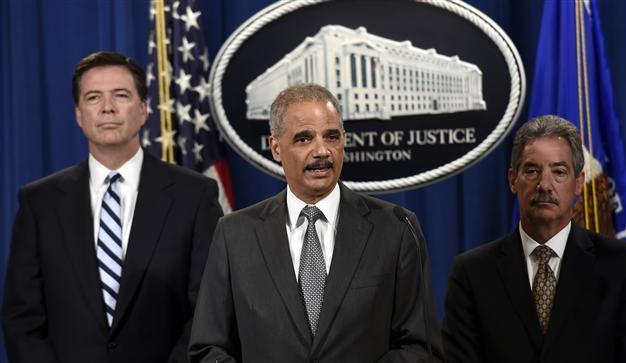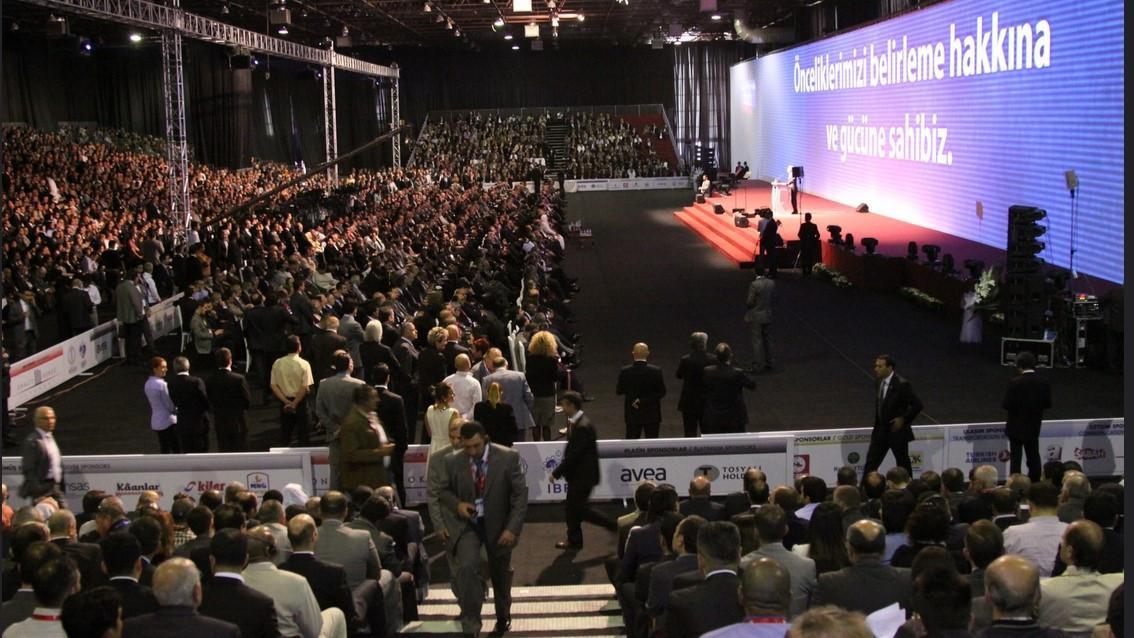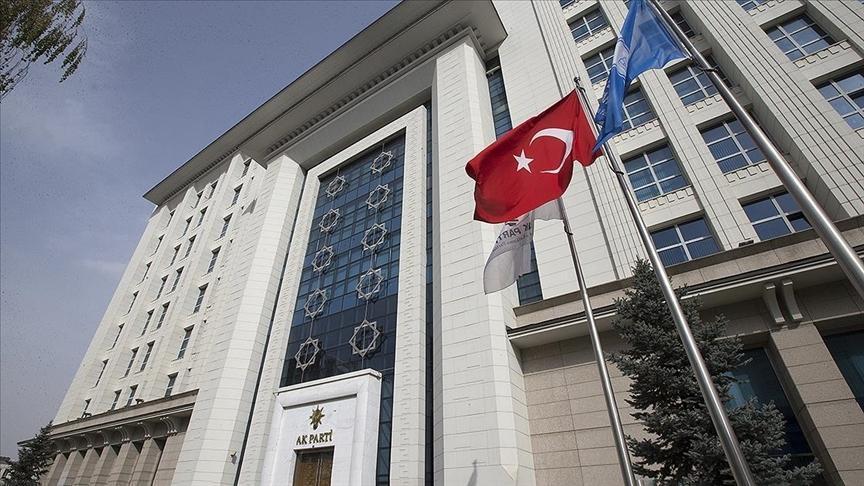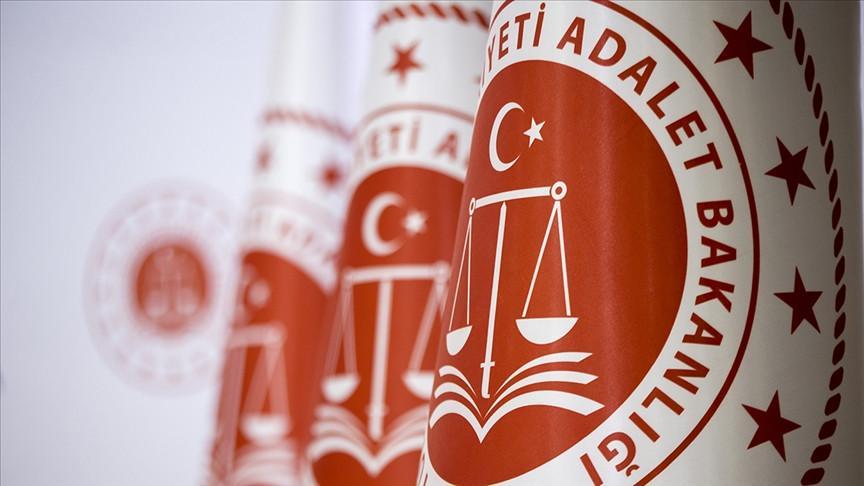BNP Paribas fined $8.9 billion for breaking US sanctions on Iran, Sudan
WASHINGTON - Agence France-Presse

Attorney General Eric Holder, center, flanked by FBI Director James Comey, left, and Deputy Attorney General James Cole, right, announced a deal between the U.S. government and French bank BNP Paribas at the Justice Department in Washington, Monday, June 30, 2014. AP Photo
BNP Paribas pleaded guilty Monday to US criminal charges of violating sanctions on Iran and Sudan for eight years and was fined a record $8.9 billion.The US Justice Department said France's largest bank deliberately hid thousands of transactions with the two countries as well as Myanmar and Cuba during 2004-2012 in what officials called a "complex and pervasive scheme" that top bank managers knew broke US law.
Officials called it the largest penalty ever obtained by the Justice Department in a criminal economic sanctions case, and the largest in any criminal case involving a bank.
"BNP went to elaborate lengths to conceal prohibited transactions, cover its tracks, and deceive United States authorities," Attorney General Eric Holder said.
The violations aided countries involved in terrorism and human rights violations, Holder said, "in many cases to the detriment of United States national security."
"This landmark resolution demonstrates the justice department's firm commitment to enforcing embargoes and other measures designed to protect America's security and our vital national interests," said Holder.
"This outcome should send a strong message to any institution, any institution anywhere in the world, that does business with the United States, that illegal conduct will simply not be tolerated."
The bank agreed to plead guilty to one count of conspiring to violate sanctions, making it the first bank found guilty in a sanctions case.
As part of the settlement, BNP will pay $8.83 billion as forfeiture of gains, split among several US agencies and authorities, and a $140 million fine.
It also agreed to give up US dollar clearing operations through its New York branch and other affiliates for one year in certain business lines like oil-related transactions, where officials say much of the misconduct took place.
And the bank is letting go of 13 employees, five of them top-level executives, including chief operating officer Georges Chodron de Courcel, who resigned in early June.
France's banking regulator ACPR said BNP could "absorb the anticipated consequences" of the fine.
But the bank supervisory authority ACPR stressed that it had previously examined the liquidity and solvency of BNP and found it to be "quite solid."
BNP chief executive Jean-Laurent Bonnafe said the bank has "accepted its responsibility for its conduct" and noted that "certain employees deliberately circumvented US rules."
"Aside from these individual failings, there was also a lack of vigilance and responsiveness," Bonnafe said.
But he downplayed the violations of laws he called "complex" and that "evolve over time." Such transactions "would have been considered permissible from a French and European regulatory standpoint," he said, but because they were dollar transactions they brought US penalties.
The details of the punishment had been widely leaked over the past weeks, and BNP said that, having already set aside 800 million euros ($1.1 billion) to cover the penalty, it would take another 5.8 billion euro charge in the second quarter.
But it said its capital base remained very strong, and would be able to pay a 1.5 euro dividend in 2014 as it did in 2013.
US Assistant Attorney General Leslie Caldwell linked the severity of the penalty to both the bank's deliberate attempts to hide the activity and its non-cooperation with the investigation.
"Remarkably, BNP continued to engage in this criminal conduct even after being told by its own lawyers that what it was doing was illegal," Caldwell said.
"Not only did BNP commit severe criminal acts, but then, BNP hindered our ability to prosecute the individuals that engaged in that wrongdoing. It must now accept the criminal consequences of its actions."
Federal Bureau of Investigation Director James Comey said the punishment was also a message to shareholders to demand better behavior from corporate management. "The $9 billion is your money," he said to BNP investors.
















